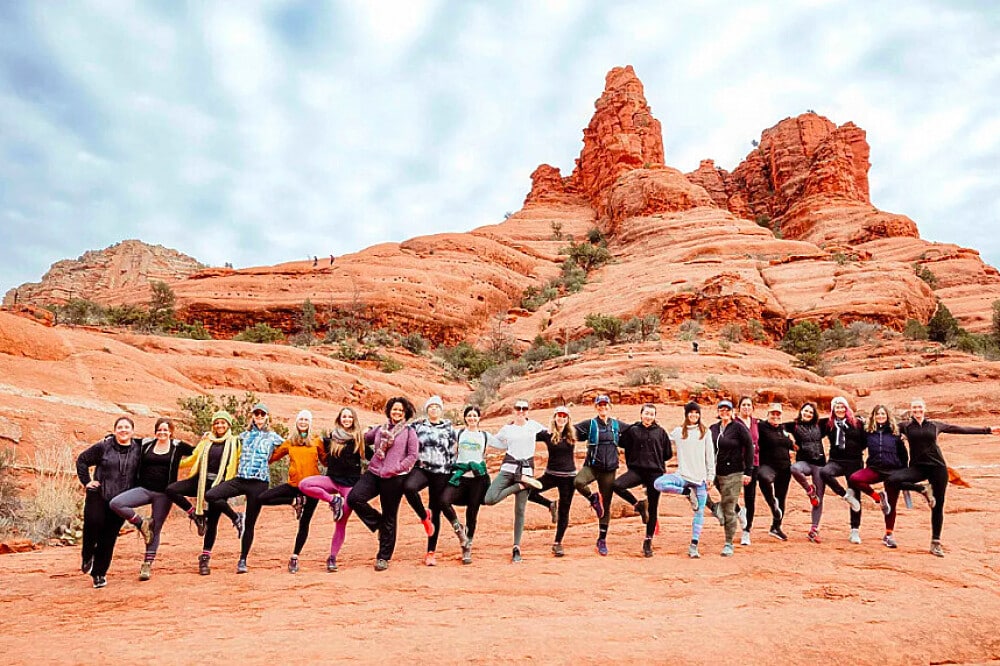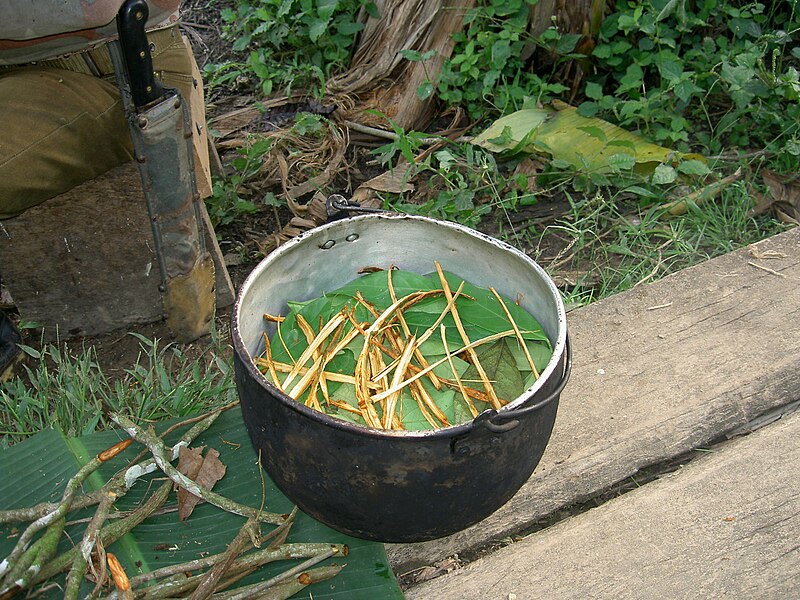Welcome to Ayahuasca Experience, the truth-seeker’s sanctuary. Today, we delve into a crucial topic for our community: Is Ayahuasca Legal in Florida? Join us as we navigate the intricate legal landscapes surrounding this ancient healing brew.
Understanding the Legality of Ayahuasca Use in Florida: Navigating the Complex Landscape for Retreats and Healing Practices
In the state of Florida, navigating the legal landscape surrounding Ayahuasca can be particularly complex due to the varying legal interpretations of its use. Ayahuasca is a powerful psychoactive brew, traditionally used for spiritual and healing purposes in South American cultures; however, it contains DMT (dimethyltryptamine), a substance that is classified as a Schedule I drug under the United States Controlled Substances Act.
While federal law generally prohibits the consumption and possession of DMT, the Supreme Court recognized a religious exemption for the use of Ayahuasca under the Religious Freedom Restoration Act (RFRA) in the 2006 case Gonzales v. O Centro Espirita Beneficente Uniao do Vegetal. This meant that members of the church involved in this case could legally use Ayahuasca as part of their religious ceremonies. However, this exemption does not necessarily extend to all individuals or groups wishing to use Ayahuasca for healing or spiritual reasons outside of this particular religious context.
For those seeking to participate in Ayahuasca retreats in Florida, it’s important to understand that the legal protections offered to specific churches might not apply to other organizations or individuals. This means that participating in or hosting an Ayahuasca ceremony without the protection of religious status could potentially lead to serious legal consequences, including arrest and prosecution.
Individuals who are seeking healing experiences with Ayahuasca in Florida must do so with a heightened awareness of the legal risks involved. Potential participants should thoroughly research the legal status of any retreat they consider attending and verify whether the organization has received any form of religious exemption or is operating under the auspices of the RFRA.
It is also worth noting that some retreats may operate in a legal gray area, claiming religious or spiritual purposes to justify their use of Ayahuasca. However, without formal recognition or legal exemption, these retreats still risk legal action from state or federal authorities.
In conclusion, while Ayahuasca has been recognized for its potential therapeutic benefits and spiritual significance, the legality of its use in Florida remains a contentious issue. Prospective participants should exercise due diligence, seek legal counsel if necessary, and consider the potential legal implications before engaging in Ayahuasca-related activities.
Elon Musk On Taking Mushrooms!
MY AYAHUASCA EXPERIENCE | STRAIGHT TO THE POINT| LAKE LURE,NC @kingthesis
Is Soul Quest legal?
Soul Quest Ayahuasca Church of Mother Earth is a spiritual learning and healing center that offers Ayahuasca ceremonies in the United States. It’s located in Orlando, Florida, and is part of a new wave of Ayahuasca retreats emerging outside traditional Amazonian contexts. The legality of Ayahuasca in the US generally falls under federal law because Ayahuasca contains dimethyltryptamine (DMT), a Schedule I controlled substance.
However, Soul Quest claims its operations are legal under a religious exemption. This exemption presumably follows from a 2006 U.S. Supreme Court decision (Gonzales v. O Centro Espirita Beneficente Uniao do Vegetal), which allowed a small Brazilian church in New Mexico to use Ayahuasca as a sacrament under the Religious Freedom Restoration Act (RFRA). In the case of Soul Quest, they suggest they are similar to the Brazilian church in their religious use of Ayahuasca, thus operating under a legal gray area.
Despite this claim, the legal status of such centers remains somewhat uncertain and contentious. The Drug Enforcement Administration (DEA) has not universally recognized all Ayahuasca-using organizations as being covered by the RFRA. Therefore, the legality of specific Ayahuasca churches like Soul Quest is not straightforward and can potentially be challenged by federal authorities.
As of my knowledge cutoff in 2023, it’s recommended that those interested in Soul Quest or similar retreats should research the most current legal standings and any potential risks involved with participating in Ayahuasca ceremonies in the United States. It’s also advisable to look into the background of the retreat, its safety protocols, and counseling support provided before making any decisions.
What are the ingredients of ayahuasca?
Ayahuasca is a traditional South American brew used both for spiritual and medicinal purposes. The primary ingredients in ayahuasca are:
- Banisteriopsis caapi: This vine, often referred to as the ayahuasca vine or yagé, contains monoamine oxidase inhibitors (MAOIs), specifically harmine, harmaline, and tetrahydroharmine. These compounds are crucial as they allow the psychoactive substances to be effective when ingested orally.
- Psychotria viridis or Diplopterys cabrerana: These plants are sources of the psychoactive compound dimethyltryptamine (DMT). Psychotria viridis, commonly known as chacruna, is the most commonly used companion plant in the Amazonian ayahuasca brew, while Diplopterys cabrerana, also known as chaliponga or chagropanga, is used primarily in certain regions.
When combined, the ingredients work synergistically— the MAOIs from the Banisteriopsis caapi vine inhibit the enzymes in the human body that normally break down DMT, allowing it to produce its profound psychological effects. It’s important to approach ayahuasca with respect, as it can provoke intense experiences and requires proper setting, guidance, and intention, typically provided during an Ayahuasca Retreat and Healing session.
Frequent Questions
What is the legal status of ayahuasca for use in retreats and healing ceremonies in Florida?
The legal status of ayahuasca in Florida is complex. As a combination of two plants containing DMT, a controlled substance, ayahuasca is generally illegal under U.S. federal law. However, court rulings have allowed certain religious groups to use it as a sacrament under the Religious Freedom Restoration Act. Outside of these specific religious contexts, use in retreats and healing ceremonies remains illegal in Florida.
Are there any licensed facilities or practitioners that can legally administer ayahuasca in Florida?
As of my knowledge cutoff in 2023, there are no officially licensed facilities or practitioners to legally administer ayahuasca in Florida. Ayahuasca is a substance that contains DMT, a Schedule I drug under the United States Controlled Substances Act, which makes its use illegal outside of approved religious ceremonies by specific religious organizations such as the UDV or Santo Daime. It’s always important to ensure legality and safety when seeking such experiences.
Has Florida law made any exceptions for religious or spiritual use of ayahuasca in healing retreats?
Yes, Florida law recognizes the religious use of ayahuasca under the federal Religious Freedom Restoration Act (RFRA). Courts have granted certain ayahuasca-using churches exemptions to conduct ceremonial use. However, these exemptions are specific to recognized churches and do not extend to all ayahuasca healing retreats. It’s important for retreats offering ayahuasca to ensure they are legally protected under these exceptions.
In conclusion, the legality of ayahuasca in Florida remains a complex issue, tangled within the nuanced web of federal regulations and state laws. Despite its potential therapeutic benefits and growing popularity within the realm of spiritual and emotional healing, individuals seeking an ayahuasca retreat must navigate this legal landscape with caution and due diligence. While certain religious groups have been granted exemptions to use ayahuasca ceremonially, it is imperative to understand that outside these specific contexts, the possession and use of ayahuasca can lead to serious legal consequences.
For those compelled by the transformative experiences reported by many ayahuasca users and interested in exploring the depths of their own consciousness, it is highly recommended to seek guidance from reputable and legally-operating retreat centers. These centers should prioritize safety, ethical practices, and respect for the legal framework in place. The path to healing and self-discovery through ayahuasca is a profound journey, but it is one that must be embarked upon with both openness and prudence. As the conversation around psychedelics and their place in modern society continues to evolve, perhaps so too will the laws surrounding ayahuasca. Until then, let us tread with awareness, respect for the law, and a commitment to the well-being of all those who seek healing.






